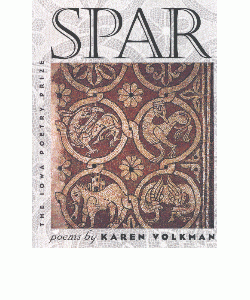Craft Capsule: Poets’ Prose

The author of Anodyne takes a poetic approach to prose writing.
Jump to navigation Skip to content

The author of Anodyne takes a poetic approach to prose writing.
With help from the Lannan Foundation, one of America’s most prestigious poetry prizes has survived the threat of shutting its doors, instead increasing its monetary award tenfold.
Nobel prize-winning poet Wislawa Szymborska, as well as Surrealist artist and poet Dorothea Tanning, passed away yesterday in their respective countries; novelist Paul Auster has engaged in a war of words with Tayyip Erdogan, the prime minister of Turkey; Open Letters Monthly examines the hidden life of Virginia Woolf's institutionalized half-sister, Laura Makepeace Stephen; and other news.

The appearance of Karen Volkman's first book of poems, Crash's Law, selected for the National Poetry Series in 1995 and published by Norton the following year, signaled the arrival of a startling and canorous voice in American poetry. In the introduction to the book, series judge Heather McHugh called Volkman "an analyst of love," and remarked that the book "bespeaks a mind attuned no less to the accidents than to the orders of a sensual life."

The short story collection Dreams of a Robot Dancing Bee, to be published later this month by Verse Press-the nonprofit literary publisher that also publishes the triannual literary poetry journal Verse-represents a significant shift in focus for poet James Tate. The author of numerous books of poetry, including Worshipful Company of Fletchers (Ecco Press), which won a National Book Award in 1997, and his Pulitzer Prize-winning Selected Poems (1991), Tate has tackled a new genre, as well as a new way of thinking about writing.